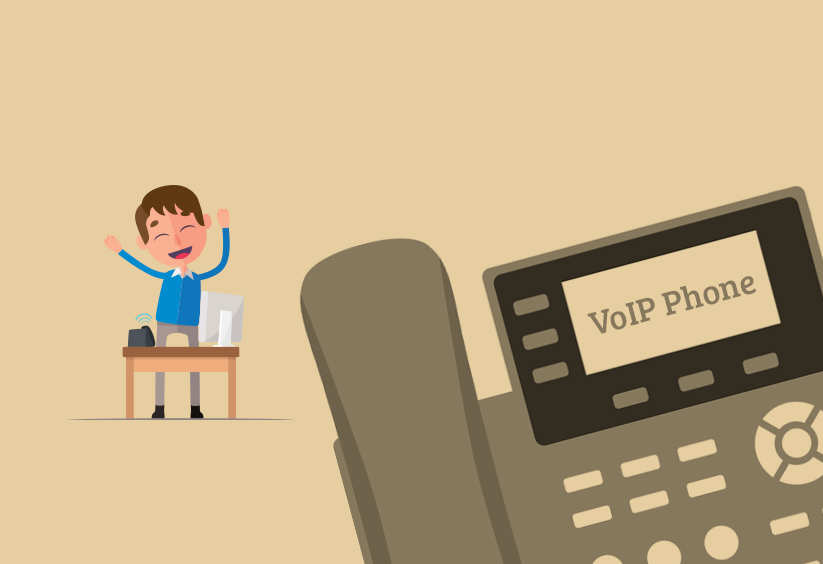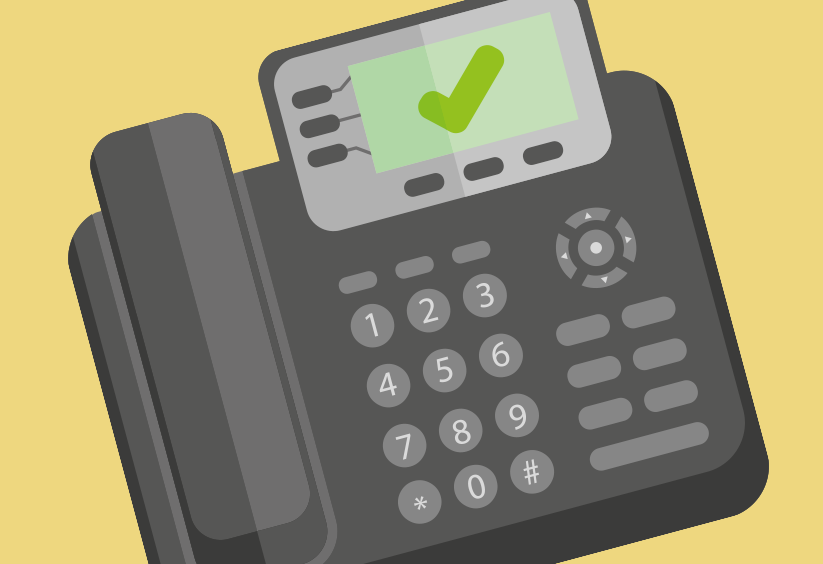Cart Total
$0.00
-
Your shopping cart is empty
Loading

Hello! Log in Your Account
New customer? Start here


|
3 min read
Contents
Quick Summary
Find out about the differences between analogue and VoIP phones, including the advantages of VoIP.
A VoIP phone, sometimes known as a SIP phone, IP phone or Internet phone, is a phone designed specifically for use with a VoIP service. VoIP stands for Voice over Internet Protocol and VoIP phones work in conjunction with a VoIP provider to transmit voice calls via an Internet connection.
You might have an analogue landline phone at home that's connected through your phone line. VoIP phones tend to look very similar to their analogue counterparts, but analogue phones are limited for use with copper wire-based POTS (Plain Old Telephone Service) lines. Phones utilising VoIP only need a connection to the Internet. With the use of an analogue to VoIP adapter, however, it is possible to upgrade a phone to be used with a VoIP service and a broadband connection.
Of course, one of the benefits of VoIP phones not using copper landlines is that you can have multiple business extensions and phones without the need for multiple phone line installations. This ensures that, if your business is made up of multi-site offices around the world, it is relatively simple to get set up without the cost of phone line installation. All the phones would be on the same VoIP service network so it would cut down on local and international call costs too.
VoIP phones typically have an RJ-45 Ethernet connector instead of, or in addition to, an RJ-11 phone connector. This is to enable easy connection to the Internet. Much like non-VoIP phones, handsets can take the form of corded devices or wireless DECT (Digital Enhanced Cordless Telecommunications) phones for greater freedom in the office.
Some VoIP phones support multiple lines or SIP accounts and lend themselves to busy office environments or Small to Medium Enterprises (SMEs). Other devices provide additional support for different VoIP features such as BLF (Busy Lamp Field) or take advantage of VoIP's HD audio capabilities to provide enhanced audio. They all have their positives, so be sure to try and find the best one to suit your business needs. Ultimately, if you want flexibility and low-cost calls, then a VoIP-based device could be just the ticket for your business.
To ensure you and your business can make and receive calls, you will need to find yourself a VoIP provider to supply you with a service. If you need a few pointers as to what to look for, we've got a handy guide to choosing a VoIP provider on our site.
Once you've found a VoIP provider that works for you with a service you can rely on, it's time to think about your phone. Some VoIP services provide you with a phone but lock you to their service. Other VoIP providers, like Yay.com, offer more device flexibility and even allow calls to be made and received via VoIP software (such as webphones and softphone apps), as well as physical VoIP hardware. Again, flexibility is the key.
With a VoIP provider and service, you will be able to unlock the power of your VoIP phone. If you'd like to explore more VoIP devices, make sure you check out the selection of VoIP phones at the Yay.com store. If you're new to VoIP you can even sample our service for free via our VoIP trial!


From side-hustles to career changes, discover small business inspiration and ideas for you to explore this year.
Posted February 19 2025 | 7 min

What should you look for when purchasing a VoIP phone? We give you tips on common considerations when pairing VoIP phones with a VoIP service.
Revised June 15 2022 | 5 min

Working from home with a VoIP Phone System should be a breeze. Here's how to fix the five most common VoIP issues
Revised December 8 2021 | 8 min

Learn how to setup a VoIP phone in a 5 minute video breaking down the stages.
Revised October 20 2021 | 6 min

Introducing BYOD or Bring Your Own Device policies to your business can help enhance your business and bring increased flexibility and satisfaction to your workforce.
Posted February 6 2019 | 7 min

Discover the uses and benefits of using Power over Ethernet (PoE) in your Hosted VoIP network and beyond.
Posted October 6 2017 | 4 min

Learn about DECT phones and the benefits of using a VoIP compatible DECT phone with a hosted VoIP service to great effect for your business calls.
Posted July 7 2017 | 3 min

Find out what ringback tones do and how they're made by your VoIP provider for your phone system.
Posted February 16 2017 | 4 min